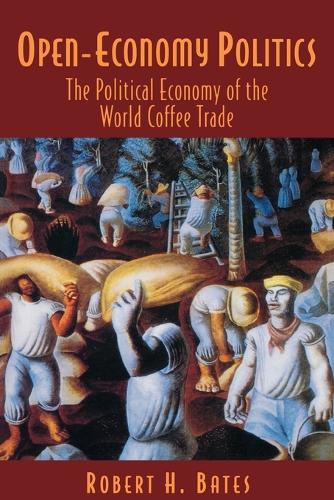
Open-Economy Politics: The Political Economy of the World Coffee Trade
(Paperback)
Publishing Details
Open-Economy Politics: The Political Economy of the World Coffee Trade
By (Author) Robert H. Bates
Princeton University Press
Princeton University Press
30th March 1999
United States
Classifications
Professional and Scholarly
Non Fiction
Retail and wholesale industries
International trade and commerce
International relations
Microeconomics
380.141373
Runner-up for Choice Magazine Outstanding Reference/Academic Book Award 1997
Physical Properties
Paperback
240
Width 152mm, Height 235mm
340g
Description
Coffee is traded in one of the few international markets ever subject to effective political regulation. This book explores the origins, operations and collapse of the International Coffee Organization, an international "government of coffee" that was formed in the 1960s. In doing so, it addresses key issues in international political economy and comparative politics, and analyzes the creation of political institutions and their impact on markets. Drawing upon field work in East Africa, Colombia and Brazil, the text explores the domestic sources of international politics within a theoretical framework that blends game theoretic and more established approaches to the study of politics.
Reviews
One of Choice's Outstanding Academic Titles for 1997 "[The] analysis is from the perspective of new institutional economics, as the book straddles the fault lines between, on the one hand, political developments in Brazil, Colombia, and the United States and, on the other, interest groups in those countries... Bates's approach is therefore innovative... The book is beautifully produced, full of useful data... It will provoke lively debate."--Robert G. Greenhill, Economic History Review "A no-nonsense academic study of the politics of coffee ..."--Charles Corn, Los Angeles Times Book Review
Author Bio
Robert H. Bates is Eaton Professor of the Science of Government in the Department of Government and a Faculty Fellow in the Institute of International Development at Harvard University. His recent books include Beyond the Miracle of the Market and a volume he coauthored with Avner Greif, Margaret Levi, Jean-Laurent Rosenthal, and Barry Weingast entitled Analytic Narratives (Princeton).
